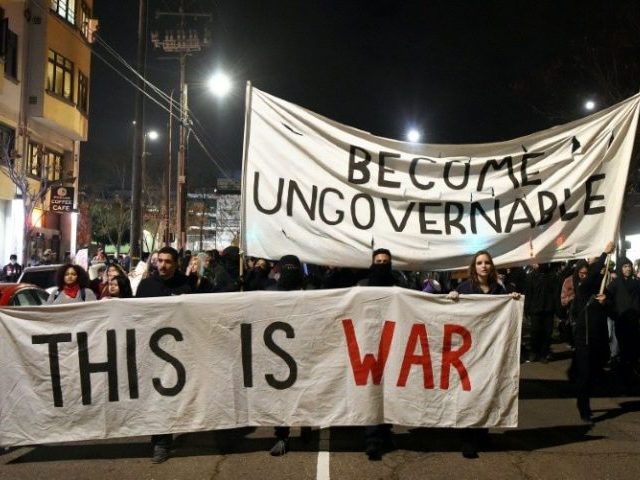Several op-eds in The Daily Californian, the independent student newspaper at UC Berkeley, defended the violence and riots that occurred in response to the MILO event that was scheduled to occur last week.
The staff at The Daily Californian provided readers with a list of commentary pieces that defended the violence that occurred at UC Berkeley last week.
Nisa Dang, an alumnus of UC Berkeley, wrote that she believed folks who were condemning the violence were speaking from a place of “privilege.”
To people with platforms who decide when a protest should and should not be violent: You speak from a place of immense privilege. As I recently wrote in a tirade against this brand of idiocy, asking people to maintain peaceful dialogue with those who legitimately do not think their lives matter is a violent act. Putting #LoveTrumpsHate at the end of a post is a privilege that many of you take advantage of, especially when there are those of us who know that our grandparents and parents survived hate only through the grace of violent action. No offense.
Dang also claimed that MILO has a history of violent actions yet failed to cite examples. She also claimed that the majority of UC Berkeley students didn’t want him to speak on campus.
From where I was standing, there was no actual dialogue about why Yiannopoulos should be invited to campus, despite his violent actions and despite the fact that — as evidenced by recent events — most of the student body didn’t want him there.
Current UC Berkeley student, Josh Hardman, dismissed the argument that the violence was exclusively perpetrated by “outside agitators,” claiming that the UCB community must take ownership for what occurred on their campus last week.
Before taking on the core issue of whether violence is legitimate, the employment of the term “outside agitator” to distance UC Berkeley students from the “violence” of the protest must be grappled with. On a fundamental level, the distinction between the actions of students and “outsiders” is incongruous with the ethos of a public university and disrespectful to the wider community in which Berkeley is (and should be more) situated. It is patronising and privileged for UC Berkeley students to claim ownership over UC Berkeley and its affairs. We have no right to exclude others from this process.
Hardman goes onto to justify the violence, claiming that there needs to be room in the resistance movement for “a plurality of experiences and tactics.”
Poignantly — given that the locus of the resistance was the Martin Luther King Jr. building — King himself was a critic of this smear, arguing that we cannot “afford to live with the narrow, provincial ‘outside agitator’ idea,” adding that “anyone who lives inside the United States can never be considered an outsider anywhere within its bounds.” King’s comments attest to the longevity of the term and also highlights the need for our movements to be inclusive of a plurality of experiences and tactics.
Towards the end of his piece, Hardman became more explicit in his defense of the violence and riots that took place on campus last week.
The key question now remains: Was the “violence” Wednesday night justified? I am of the opinion that it was the plurality of tactics employed Wednesday evening that contributed to the success of the cancellation of the talk. I merely wish to offer some thoughts in hope of reframing the dominant narrative. I urge you to consider whether damaging the windows of places like banks and the Amazon student store constitutes “violence” — and, if so, what weight this “violence” carries in the context of the symbolic, structural and actual violence that is proposed, condoned and actioned by the likes of Milo Yiannopoulos and his supporters.

COMMENTS
Please let us know if you're having issues with commenting.